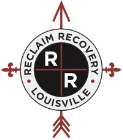Our Blogs

How Reclaim Recovery Tailors Treatment for Trauma Survivors
Not all addictions start with a substance—many start with a wound. Behind every struggle with drugs or alcohol, there's often a deeper pain: unresolved trauma. Whether from childhood abuse, domestic violence, military service, or chronic emotional neglect, trauma rewires the brain and body in ways that make substances feel like the only escape. That’s why trauma-informed care isn’t just a bonus—it’s a necessity. At Reclaim Recovery Louisville, we don’t just treat addiction; we help heal the traumatic experiences that often fuel it. Here’s how we do it.
Why Trauma and Addiction Are So Closely Linked
Trauma changes how the brain and body function. It activates survival mechanisms that are meant to protect us—but when those responses become chronic, they create emotional and psychological chaos.
What Happens in the Brain:
The amygdala (the brain’s fear center) becomes overactive, constantly scanning for danger.
The prefrontal cortex, which regulates decision-making, becomes underactive.
The nervous system stays stuck in fight, flight, or freeze mode—creating anxiety, depression, and impulsive behaviors.
For many, substances become a way to self-regulate—to feel numb, calm, or momentarily safe. This pattern becomes addiction.
According to research from the National Child Traumatic Stress Network, individuals with a history of trauma are significantly more likely to develop substance use disorders. This isn’t weakness—it’s adaptation.
What Trauma-Informed Addiction Treatment Really Means
Many programs claim to be trauma-informed. But true trauma-informed care goes beyond therapy buzzwords. It’s a complete shift in philosophy—a commitment to safety, respect, and individualized healing.
At Reclaim Recovery Louisville, trauma-informed care includes:
Emotional Safety First: Clients are never pushed to “dig deep” before they’re ready. We build trust before asking vulnerability.
Empathy Over Judgment: Staff are trained to understand that outbursts, avoidance, and resistance often stem from pain—not defiance.
Holistic Support: Trauma is stored in the body, not just the mind. We incorporate body-based therapies like yoga, breathwork, and mindfulness alongside counseling.
Empowered Choices: Clients help shape their own treatment plan, which restores agency—a key to trauma recovery.
Cultural Sensitivity: We acknowledge how race, gender, sexuality, and background affect trauma and healing.
Every single touchpoint—from intake to aftercare—is designed to avoid re-traumatization and to support deep restoration.
Tailoring Treatment for Trauma Survivors at Reclaim
We know that one-size-fits-all treatment doesn’t work—especially not for trauma survivors. Our approach layers compassion with clinical precision.
1. Comprehensive Trauma Assessment
Every client receives a detailed trauma screening upon intake. This ensures that past experiences aren’t ignored or minimized—and informs how we pace treatment.
2. Integrated Mental Health Services
Addiction is often just the surface. We provide dual-diagnosis care for PTSD, anxiety, depression, and dissociation. When you treat both addiction and trauma together, outcomes improve dramatically.
3. Clinician-Client Matchmaking
Our team includes clinicians trained in trauma-focused therapies like EMDR, CBT, and Internal Family Systems (IFS). We pair clients with the right specialists based on their unique story and recovery needs.
4. Ongoing Consent & Feedback Loops
Clients are never “talked at.” We check in frequently, adjusting treatment based on emotional tolerance and progress. This dynamic model helps prevent burnout and relapse.
5. Safe Group Spaces
Group therapy can be powerful—but also triggering. Our groups emphasize safety, shared humanity, and boundaries. Clients learn they’re not alone, and they’re not broken.
The Benefits of Trauma-Informed Recovery
When treatment is rooted in trauma-awareness, something powerful happens: clients stop surviving and start healing.
Benefits include:
Greater emotional regulation
Reduced relapse rates
Improved self-esteem and body awareness
Healthier relationships
Lasting motivation to stay sober—not just for survival, but for joy
As trauma is processed and soothed, the nervous system begins to calm. Substance cravings decrease. A life without constant fear becomes imaginable—and achievable.
Why Louisville Needs More Trauma-Informed Care
Kentucky ranks among the highest in the nation for ACE (Adverse Childhood Experiences) scores. That means many residents carry deep psychological wounds before they ever pick up a substance. In our community, trauma is not the exception—it’s the rule.
Reclaim Recovery Louisville is proud to be a local leader in addressing this reality head-on. We’re committed to trauma literacy, compassionate care, and being a place where healing doesn’t require perfection—only honesty and hope.
Frequently Asked Questions (FAQs)
1. What is trauma-informed addiction treatment?
It’s an approach that recognizes the connection between trauma and substance use. It prioritizes emotional safety, empathy, and individualized care to support healing on every level.
2. Do I have to talk about my trauma in treatment?
No. We move at your pace. Some clients address trauma right away; others wait until they feel ready. You’re in control.
3. What types of therapy are used for trauma at Reclaim?
We use evidence-based methods like EMDR, trauma-focused CBT, IFS, mindfulness-based stress reduction, and more.
4. Can outpatient treatment still help with trauma?
Absolutely. Our IOP and outpatient models are designed to support deep trauma recovery while allowing you to live at home and work if needed.
5. Is trauma treatment covered by Medicaid in Kentucky?
Yes. Most trauma-informed services—including mental health counseling—are eligible under Kentucky Medicaid. We’ll help you verify coverage and apply if needed.
6. What if I don’t know if I’ve experienced trauma?
That’s okay. Many people don’t label their experiences as trauma. Our intake team is trained to ask the right questions with care and discretion.
Let Healing Begin—At Your Pace
If trauma has been driving your addiction, you deserve more than sobriety. You deserve wholeness. At Reclaim Recovery Louisville, we’ll help you take that journey—step by step, with no judgment, only support.
📞 Call Reclaim Recovery Louisville today to speak with a trauma-informed admissions specialist. Recovery is possible. Healing is real. And you’re not alone.


